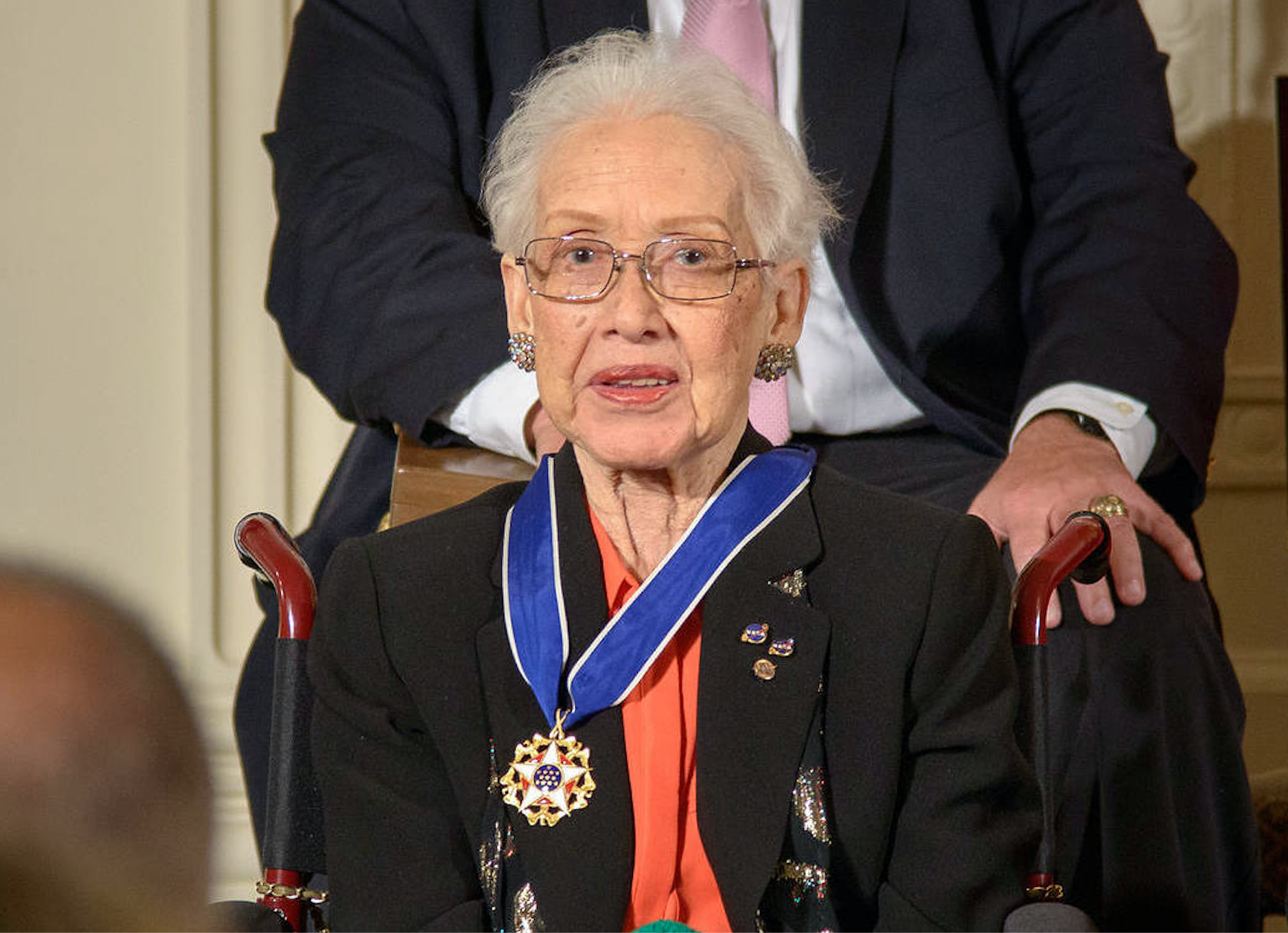‘Hidden Figures’ Mathematician Katherine Johnson Defined Her Century and Left a Legacy for Ours

Credit to Author: Becky Ferreira| Date: Mon, 24 Feb 2020 19:38:46 +0000
Katherine Johnson, a mathematician and cultural icon who helped land the first humans on the Moon, died on Monday in Newport News, Virginia. She was 101.
During her century of life, Johnson’s brilliance with numbers helped propel NASA toward its most coveted milestones. But in addition to her vital contributions to crewed space programs, Johnson is remembered for her quiet determination to thrive as an African-American woman in a field dominated by white men and during an era of rampant racial and sexual discrimination.
In recent years, Johnson’s legacy both as a mathematician and a role model has been recognized on a global level. In 2015, President Obama presented her with the Presidential Medal of Freedom, describing Johnson as “a pioneer who broke the barriers of race and gender, showing generations of young people that everyone can excel in math and science and reach for the stars.” She was also awarded the Congressional Gold Medal in 2019.
Her life story inspired the 2016 film Hidden Figures, based on the book by the same name by Margot Lee Shetterly. A critical and commercial success, the movie also featured Dorothy Vaughan and Mary Jackson, two fellow "computers who wore skirts" as Johnson called her peers at NASA.
Katherine Johnson (née Coleman) was born on August 26, 1918, in White Sulphur Springs, West Virginia. Even as a child, she enjoyed playing with numbers in her head and her parents soon recognized her as a math prodigy. She skipped grades and graduated high school at 14, and was mentored by a professor at the West Virginia State Institute, a historically black college near Charleston, who designed courses just for her, according to Shetterly’s book.
After graduating summa cum laude at age 18, she became the first black woman to enroll in a graduate program at West Virginia University, but put her academic career on hiatus to start a family with her first husband, James Goble, with whom she had three daughters.
Johnson eventually resumed her ambition to become a research mathematician, and was hired as a computer at what is now NASA’s Langley Research Center, in 1953. Even as she and her fellow computers contributed to the agency’s lofty goals, they endured a segregated workplace that forbade them from sharing basic facilities such as offices and bathrooms with their white colleagues.
Three years after the death of her first husband in 1956, Katherine married US Army officer James Johnson and continued to build on her successes at NASA. John Glenn, the first American to orbit Earth, trusted her work so much that he specifically requested that she review the flight trajectories for his Friendship 7 orbital mission.
As the Space Race kicked into full speed, Johnson calculated the flight paths that would eventually land Apollo 11 on the Moon in 1969. Even during this momentous event, which she watched at a sorority meeting in the Poconos, Johnson’s combination of grit and wit shone through.
"It all seemed routine to people by then," Johnson said of the first Moon landing.
In addition to landing astronauts on the Moon, Johnson helped calculate the best trajectories to bring the stranded Apollo 13 astronauts back to Earth after their spacecraft experienced a malfunction that required an emergency return without a lunar landing. She continued to work at NASA until her retirement in 1986.
Though Johnson earned numerous awards and tributes, she expressed an understated bemusement about the accolades. The praise never seemed to get to her head, which remained a temple for numbers long after she retired.
Take, for instance, Johnson’s reaction to the unveiling of an enormous new building named the Katherine G. Johnson Computational Research Facility at Langley in 2016. The same workplace that had kept Johnson and other African-Americans segregated from white peers until 1958 had, decades on, erected a center devoted to one of its most cherished pioneers.
When Johnson was asked how she felt about the honor, she said: “You want my honest answer? I think they’re crazy.”
This article originally appeared on VICE US.